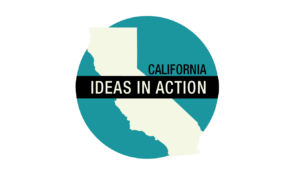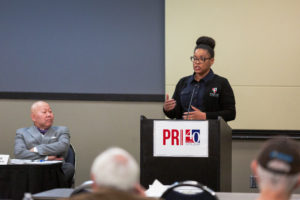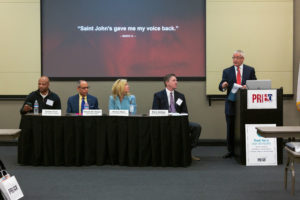 Last week, PRI held its inaugural “California Ideas in Action” policy conference in Sacramento.
Last week, PRI held its inaugural “California Ideas in Action” policy conference in Sacramento.
A capacity crowd came together near the State Capitol for a half-day conference exploring how free-market ideas can address California’s most pressing challenges.
Legendary Sacramento political reporter and current CALmatters columnist Dan Walters was the event’s keynote speaker. He discussed how the Golden State’s evolving political landscape resulted in the 2018 blue wave and previewed what Californians can expect from a liberal supermajority at the State Capitol.
This year’s conference focused on how free-market ideas that have wide, bipartisan appeal in polling can serve as the foundation for the formation of new, diverse coalitions. While the Republican Party may have experienced a terrible defeat in 2018, polling in California and nationally suggests that free-market ideas remain popular following the November election.
 As the conference moderator – PRI board member and chair of our California Reform committee Dan Kolkey noted in his prepared remarks – “If government is so popular, why aren’t more Californians pointing to government agencies, like the DMV, as exemplars of reasonably priced, efficient service?”
As the conference moderator – PRI board member and chair of our California Reform committee Dan Kolkey noted in his prepared remarks – “If government is so popular, why aren’t more Californians pointing to government agencies, like the DMV, as exemplars of reasonably priced, efficient service?”
He quotes an observation from the late Milton Friedman: “When government – in pursuit of good intentions – tries to rearrange the economy, legislate morality, or help special interests, the cost comes in inefficiency, lack of motivation and loss of freedom.”
Four panel discussions at the conference explored market-driven solutions that have bipartisan appeal and could form the nucleus for more political balance in the Golden State.
PRI President, CEO, and Thomas W. Smith Fellow in Health Care Policy Sally Pipes moderated a panel discussing free-market solutions to California’s health care challenges, joined by PRI’s Wayne Winegarden and Henry Miller. The discussion comes as Gov. Newsom has proposed an individual mandate and government prescription drug buying scheme, while many liberals are pushing for single-payer health care.
The panelists explored how market-based health care policy ideas can better address California’s health care challenges – without bankrupting the state.
PRI’s senior director of education studies Lance Izumi moderated a panel on charter schools, which have been under attack in the wake of the recent teachers strikes and Gov. Newsom signing so-called “accountability” legislation into law. Margaret Fortune of the Fortune School and Bill Lucia of EdVoice shared their first-hand experiences on how charter schools play a key role in meeting the diverse needs of California’s students.
Wayne Winegarden, PRI senior fellow in business and economics, moderated a discussion on how government policies cause more people to live in energy poverty – spending more than 10 percent of annual income on energy.
 Dan Kolkey shared his ideas on how to reform the California Environmental Quality Act to streamline homebuilding across the state, while John C. Gamboa of California Community Builders and Nick Loris of the Heritage Foundation discussed how state government policy is hurting poor, rural, inland, and minority communities.
Dan Kolkey shared his ideas on how to reform the California Environmental Quality Act to streamline homebuilding across the state, while John C. Gamboa of California Community Builders and Nick Loris of the Heritage Foundation discussed how state government policy is hurting poor, rural, inland, and minority communities.
The conference concluded with a panel on poverty and homelessness, moderated by PRI Center for California Reform fellow Kerry Jackson. While there are many well-intentioned government anti-poverty programs in California, private charities and non-profits are often doing a more effective job than government in turning lives around.
Michele Steeb of Saint John’s Program for Real Change in Sacramento, Deacon Jim Vargas of Father Joe’s Villages in San Diego, and PRI fellow in Business and  Economics Damon Dunn shared their experiences and discussed how out-of-the-box thinking can help alleviate poverty.
Economics Damon Dunn shared their experiences and discussed how out-of-the-box thinking can help alleviate poverty.
Summing up our conference them, Dan Kolkey argued that, “if government programs are the solution to California’s pressing problems, how is it that California has the highest income tax rates in the nation, the highest state sales tax in the nation, and the second highest state gas tax, but the highest poverty rate in the nation – 19% of Californians are in poverty– and a huge homeless problem in its major cities at the very moment that the economy is booming.”
Stay tuned as we post videos of the panel discussions above. We hope that you will watch them and be inspired to join us in fighting for free-market reforms at the state and local level that will help turn California around.
Tim Anaya is the Pacific Research Institute’s communications director.

